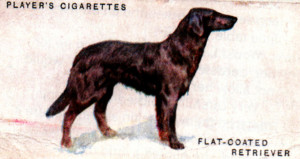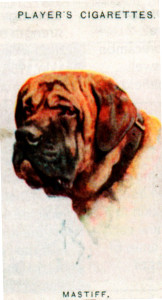Cigarette companies included cards in their packs, on themes ranging from film stars to fish, and they usually came in sets of 50. You could stick them in special albums, but my friends and I kept our sets in shoeboxes, secured by rubber bands.
I had a second shoebox in which I kept my spares ready for swapping, and that too was full.
Our main source of supply was our parents, family members and their friends, almost all of whom were smokers. We also used to stop men in the street with the time-honoured cry, “Got any fag cards, mister?” We would accost men on our way to school or while we were playing out in the evenings. We would waylay men returning from work or on their way back from watching the cricket on summer evenings. Certain points on Plumstead Common and the junction of Plumstead Common Road with Burrage Road were particularly profitable pitches.
The line-up
At school, we played ‘fag cards’ at break time. The card players gathered along the wall by the lavatories and were of two types – pitch holders and players. The pitch holder would squat down close to the wall and arrange his options. He would lean a card against the wall, fold a card in two and place it a few inches in front of the wall, or he could bend
the edges of the folded card back about a quarter of an inch so that it looked in profile rather like a witch’s hat. The row of pitch holders would offer cards in a variety of positions, and encouraged the players to patronise them by shouting the odds.
The players crouched several feet from the wall (our oche was a standardised distance pragmatically arrived at and rigidly enforced) and attempted to flick a card to knock the pitch holder’s card over.
If successful, the player was rewarded with new cards. It was fairly easy to knock over a card leaning against the wall, and for that he received one card plus his own card back. It was harder to knock over a folded card, so he got two cards for this. Turning the carefully folded and bent card upside down demanded accurate and forceful play, and he won two cards for this.
 All cards that missed were gathered in and kept by the pitch holder.
All cards that missed were gathered in and kept by the pitch holder.
It was a busy corner of the playground, with small boys clutching packets of fag cards in their hands, moving from pitch to pitch according to slight variations in the odds.
Those who were skilled in the accurate flicking of cards tended to remain players. Less successful players would seek to recoup their losses by becoming pitch holders.
One entrepreneurial development of our play was the employment of the most skilled flickers by boys who had little skill themselves but had a store of cards and ambitions for an even larger one.
It so happened that my friend Firebrace (always known as Fireplace) had magic in his fingers.
I employed him from time to time when I was going through a lean spell, having first agreed on his fee of a number of cards of his choice. Obviously, the stiffer the card, the better and more effective it was to flick, and Fireplace was expert on the playing merits of cards produced by various cigarette companies. He made quite a profit from me. My collection of cards and shoeboxes disappeared during the war, like many of my boyhood treasures. However, I must admit I still feel rather a pang when I come across a table laden with sets, many of them old friends, at antiques fairs.
Adrian Bristow, Chester









